IBERIA’S INVESTMENT CASE: A MARKET MATURING WITH MOMENTUM
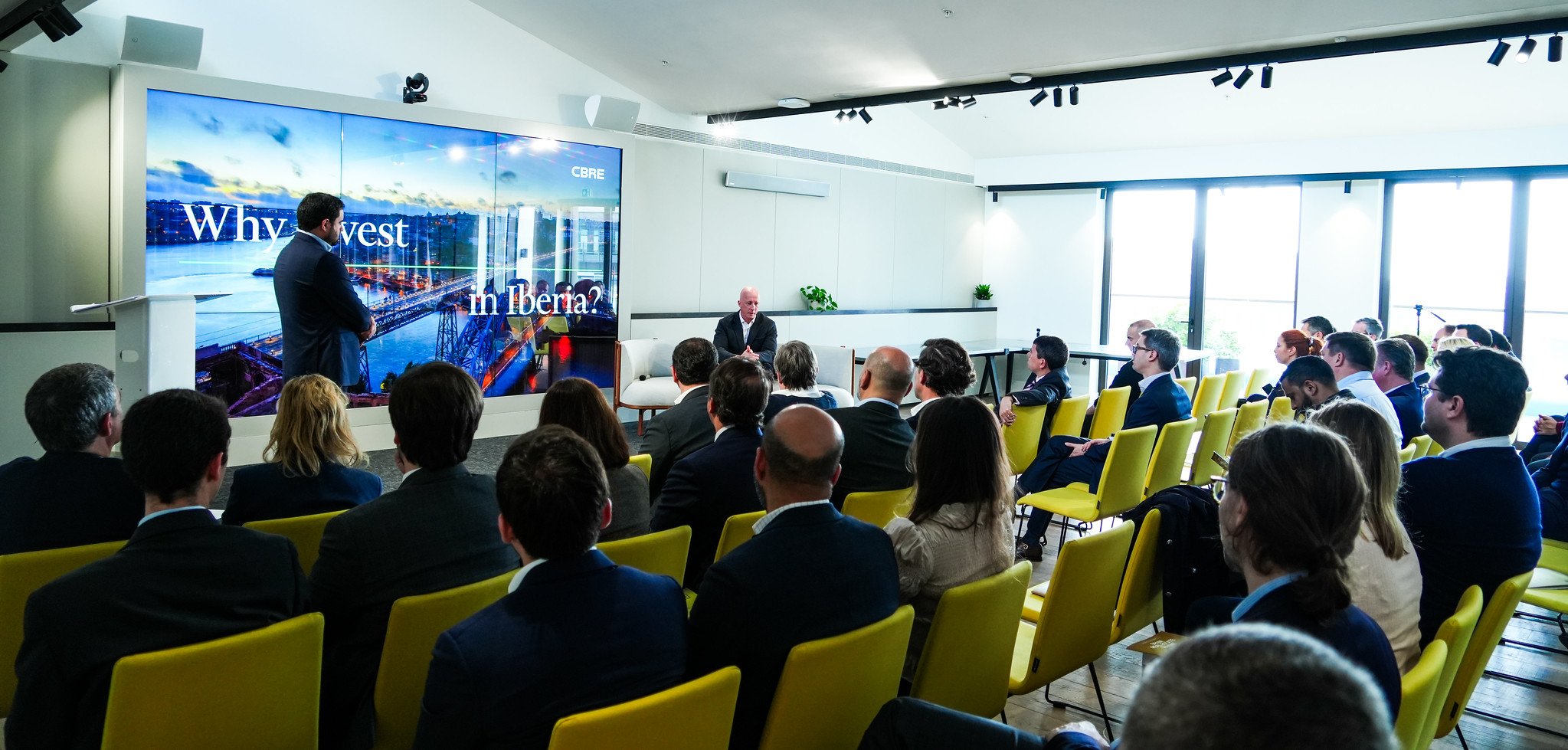
On the 1st of April, in London, Iberian Property and CBRE resumed the series of the IBERIAN INVESTMENT BRIEFING, a premier half-day conference dedicated to real estate investment opportunities in Spain and Portugal. Under the title "IBERIA: LEADING EUROPE FORWARD," this exclusive event brought together key industry leaders to explore the latest market insights, strategies, and emerging opportunities in the Iberian region.
In the midst of Europe’s macroeconomic uncertainty, the Iberian Peninsula is increasingly emerging as a compelling destination for real estate capital. That was the central message from Paloma Relinque and Igor Borrego, Heads of Capital Markets for CBRE in Spain and Portugal respectively, who joined forces to present a cohesive picture of the region’s investment fundamentals.
They pointed to a macroeconomic context that places Iberia ahead of many of its European peers. While much of the continent grapples with demographic decline and subdued GDP performance, Spain and Portugal are outpacing expectations. The primary driver? A steady inflow of young, economically active immigrants who are replenishing labour markets and providing the kind of demographic engine that is essential to long-term economic vitality.
Igor Borrego emphasised the growing strategic relevance of geography in today’s geopolitically complex landscape. Shifts in global production and energy systems, combined with a renewed focus on proximity to talent, are pushing corporations to reconsider their locations. Iberia, with its favourable climate, quality of life, and now its burgeoning infrastructure, is starting to benefit from this rebalancing.
Among the sectors poised to benefit most from these trends, hospitality was cast as a standout. Tourism is booming once again—with Spain and Portugal both seeing double-digit growth in foreign arrivals year-on-year—and the region is now attracting a new wave of ultra-luxury international hospitality brands. This influx is not just a reflection of growing visitor numbers, but a signal of the region’s capacity to support premium, long-term investment strategies in the hotel space.
Meanwhile, the residential sector is fast becoming the centrepiece of Iberia’s investment convergence. While traditionally Spain and Portugal have been viewed as separate markets with distinct cycles—Portugal often seen lagging Spain by 18 to 24 months—Igor Borrego argued that this is changing. Housing demand, driven by immigration and internal demographic shifts, is bringing the two markets closer together. But supply remains a significant issue. Current construction activity is running at just a fifth of what was achieved during peak years, compounding the structural undersupply and intensifying pricing pressures.
Paloma Relinque pointed to the Livensa transaction, a €1.2 billion deal in the purpose-built student accommodation (PBSA) space, as a powerful illustration of international capital’s growing appetite for residential alternatives in Iberia. Student demand is surging, yields are attractive (hovering around 5%), and investor competition is robust. This momentum is not limited to PBSA—senior living and healthcare are also beginning to attract attention, spurred by the reality that Iberia will have one of Europe’s oldest populations by 2050.
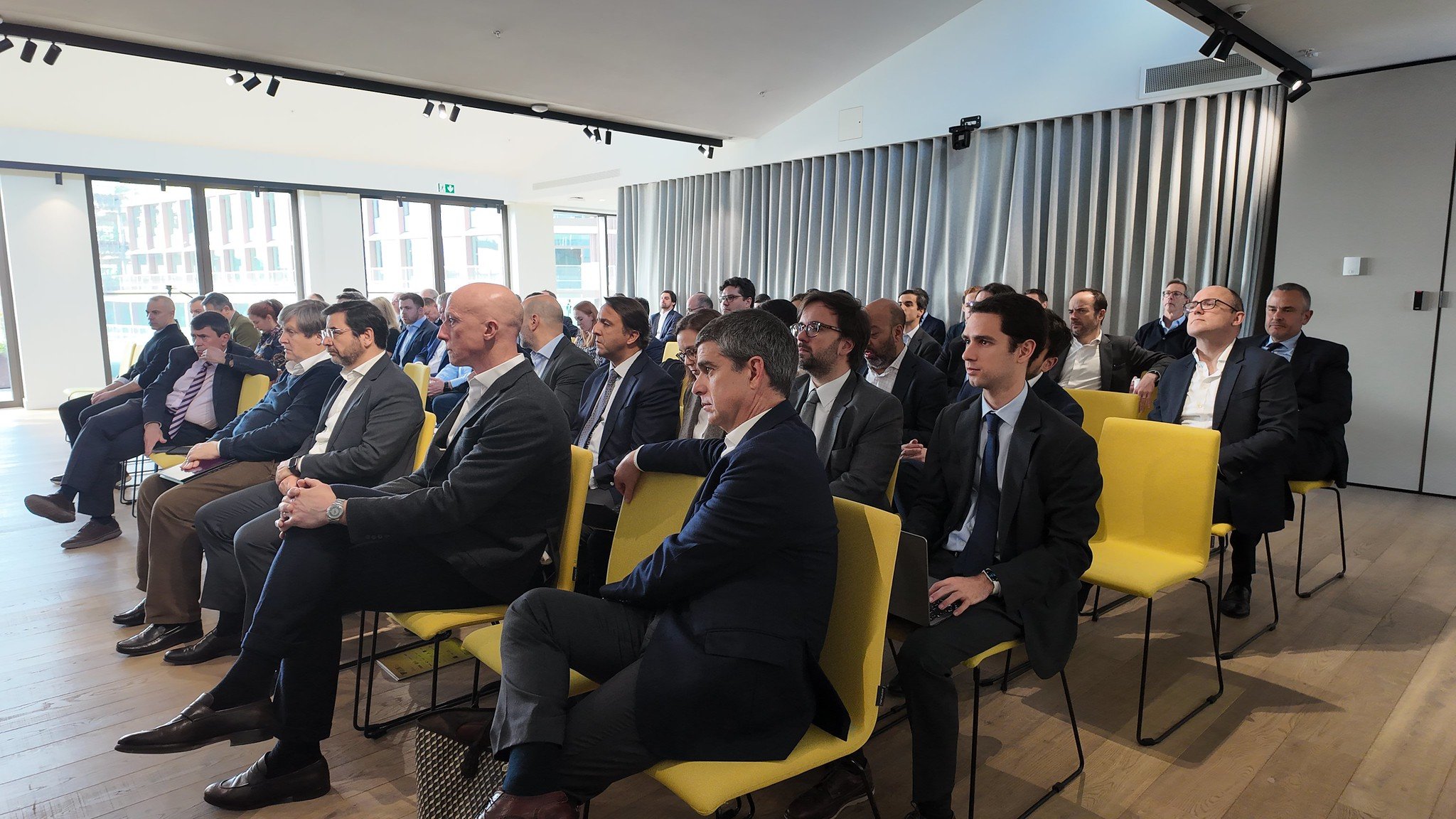
Industrial and logistics remain another core area of strength. CBRE’s analysis shows that Iberian logistics assets have consistently outperformed their European counterparts, driven by strong take-up, limited supply, and improving infrastructure. Vacancy rates are expected to stabilise, and future tailwinds could come from defence-related strategies and government spending—particularly relevant given the current geopolitical climate.
Offices, a sector whose recovery has been met with scepticism in many parts of Europe, are showing renewed signs of life. Companies are returning to central business districts, and rents are beginning to reflect that. According to Paloma Relinque, even the word “core” is no longer taboo in investment committees, signalling a broader reacceptance of traditionally low-risk strategies. That said, liquidity remains an issue, a sentiment echoed across several asset classes.
Retail, particularly high-street retail, is also regaining its footing. Prime rents are rising, and dynamic leasing activity suggests sustained investor interest. Family offices, in particular, are active in this space, viewing it as a resilient hedge with potential for long-term capital appreciation.
In the alternatives space, agribusiness is seeing increased interest, spurred by shifting global food dynamics. Meanwhile, data centres are becoming an increasingly relevant play for institutional capital, underpinned by Iberia’s leadership in renewable energy and its capacity to deliver infrastructure at scale.
Looking ahead, major infrastructure projects and events will further bind the two markets together. The upcoming FIFA World Cup in 2030, to be hosted jointly by Spain and Portugal, is already driving investment in transport and logistics. Among these developments is a high-speed rail line that will connect Madrid and Lisbon, symbolising a deeper integration that goes beyond bricks and mortar.
For investors seeking exposure to a European region with positive demographic momentum, diversified sector opportunities, and a growing track record of institutional-quality deals, Iberia may no longer be a peripheral market. It is increasingly becoming central to the European real estate conversation.
Inside Iberia: the view from an International Asset Manager
When it comes to identifying and executing complex real estate investments across Europe, Colman Mccarthy, Partner in Real Estate Investments at Signal Capital, has a track record that speaks for itself. Following CBRE’s presentation on Iberian real estate investment opportunities, in an interview format Mccarthy shared insights into the fund’s strategic entry into the Spanish and Portuguese markets—regions that have formed a distinct and profitable component of Signal’s broader European portfolio.
Signal Capital Partners, a London-based private asset management firm, was established in 2015with a clear strategy: to pursue opportunistic real estate investments across the capital stack, featuring direct equity investments and excluding senior lending. With an eye toward returns in the 15–20% IRR net range, typically over a three to four-year investment horizon, the firm presents itself as “market and sector agnostic”, is to say non constrained on those matters.
Mccarthy’s own path into the Iberian market began somewhat indirectly—through early work on non-performing loan (NPL) acquisitions during his time at Kennedy Wilson. “I was bidding on Octopus, a very large Iberian NPL portfolio,” he recalled. “We were unsuccessful, but I ended up spending a lot of time in Madrid and Lisbon and developed a strong familiarity with the local market and players.” This initial exposure laid the groundwork for what would become a more deliberate strategy once Signal Capital was established.
In its first fund, Signal executed two office transactions in central Madrid and another two office investments, along with a hotel transaction, in Portugal. Each project was underpinned by a different set of fundamentals, reflecting the distinct market dynamics in each country.
“In Madrid, we acquired offices with vacant possession, invested capital into refurbishment, re-let the buildings, and exited at a profit. That was around 2017 or 2018—when capex wasn’t as prohibitively expensive as it is now.”
Lisbon, on the other hand, offered a more straightforward value proposition. “On a per square metre and yield basis, it was just cheaper. We acquired a large office building just outside Parque das Nações. It had legacy ownership, very low rents, and was under-managed. Our business plan was clear: bring in strong local partners, institutionalise the building, and reposition it.” The result was a textbook success, with the building selling during the pandemic for over €100 million—a significant exit in Portuguese market terms.
The pattern repeated itself with an office park acquisition on Lisbon’s western corridor. “Again, we partnered with an excellent local asset manager, made public realm and amenity upgrades, and executed very well. That exit, too, was over €100 million. Not bad for a market that’s often light on liquidity.”
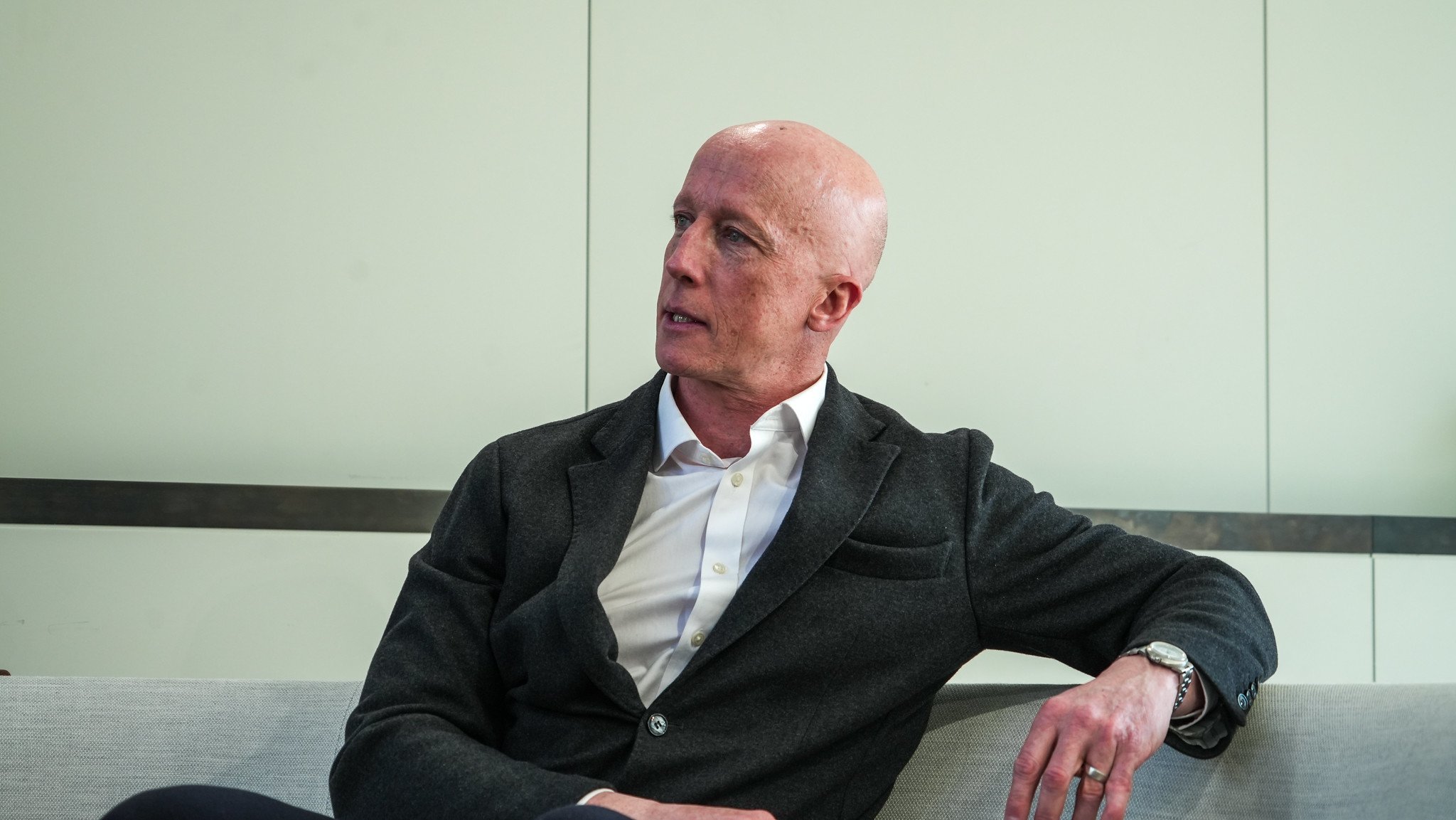
Iberia’s Role in the Broader Portfolio
While Iberia is not the core of Signal’s pan-European portfolio, it remains a meaningful component. With approximately €3 billion in assets under management, the region currently accounts for around 10%.
“We’ve just completed two new office projects in central Lisbon,” Mccarthy said. One of them is a landmark building on Avenida da República, previously owned by Angolan oil giant Sonangol. Acquired in 2020, the asset is now being leased up. The other, a boutique development on the city’s Riverside, has achieved top-floor rents at €35 per square metre—a notable benchmark in the Lisbon office market.
Signal’s exposure in Spain also includes hospitality. In Tenerife, the firm acquired a hotel with vacant possession, spent 18 months refurbishing it to a true five-star standard, and has now entered the ramp-up phase. “We had some legacy F&B issues, which we’ve since resolved by bringing in a new operator,” Mccarthy added.
Why local partnerships are essential
Signal’s lean London-based real estate team—just eight professionals covering all of Europe—means local execution capability is non-negotiable. “There’s absolutely no way we could run the type of projects we do without strong local partners,” Mccarthy stressed. “A huge part of my job is flying across the continent, meeting potential asset managers and operating partners, and assessing who we can work with. In Iberia, we’ve been lucky to find great collaborators who’ve made a significant impact.”
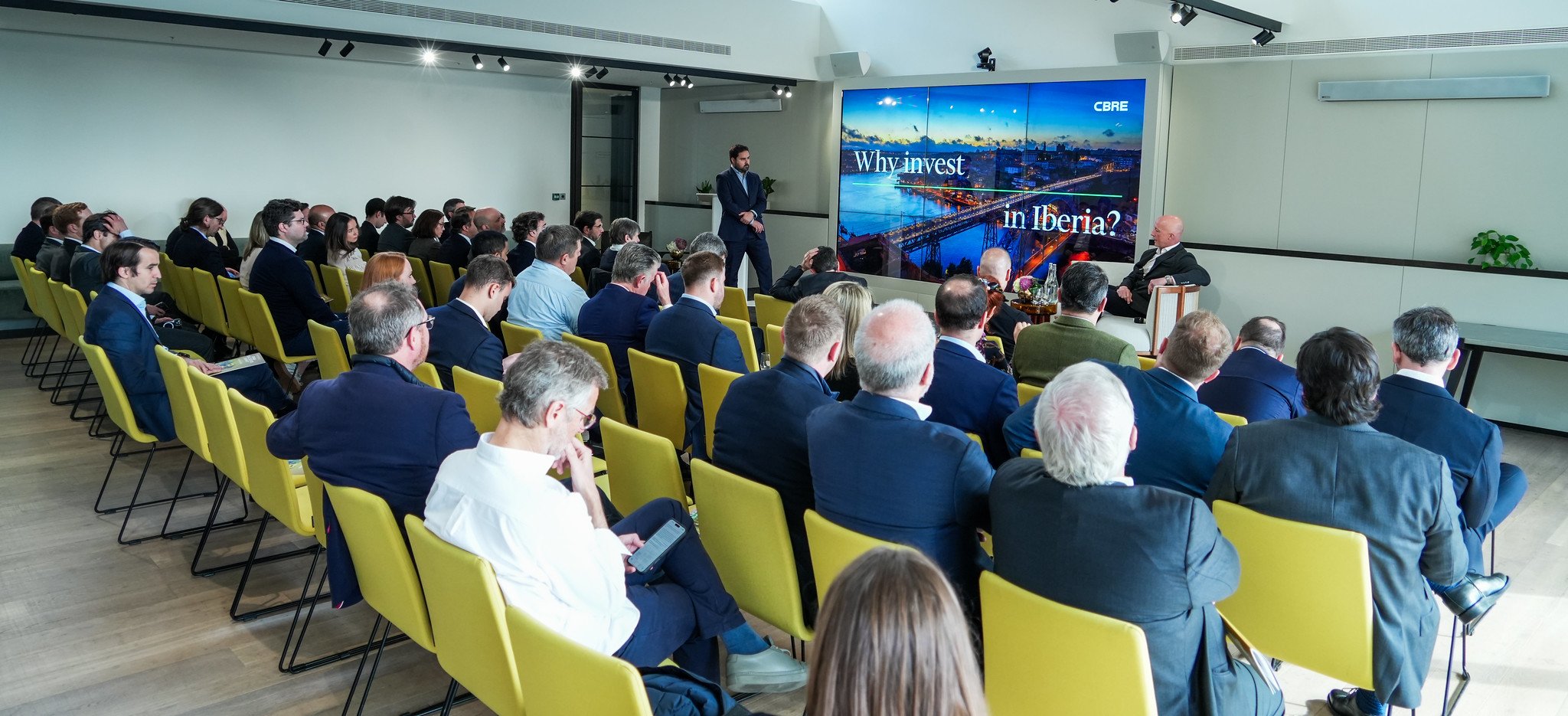
The Legal landscape: familiar challenges, local nuances
Asked about the legal frameworks in Spain and Portugal, Mccarthy described them as relatively manageable compared to some other jurisdictions. “There’s a slightly more relaxed cultural style, which helps. We’re also active in the UK, Germany, Italy, Poland, and the Spanish islands, so we’ve developed a good feel for regional differences.”
However, not everything is straightforward. “Licensing has been tricky in some cases. What’s often surprising from an Anglo-Saxon perspective is the power that municipalities wield. That takes getting used to.”
Still, regulatory hurdles are not the biggest concern. “Liquidity is the bigger issue. Outside Lisbon, Porto, Madrid, and Barcelona, it can be hard to find a buyer. And since our model is built around three-to-four-year holds, we always have to ask: who’s going to buy this next?”
"Capital availability and scalability remain key constraints"
Portugal, in particular, presents challenges when it comes to capital exits. “There are a few local champions with capital, but I joke with them—because I say this directly—that I wouldn’t want to be selling to them. They’re not going to pay me the premium I need to meet our returns.”
Another difficulty lies in scaling operations. Mccarthy cited Purpose-Built Student Accommodation (PBSA) as a promising sector in both Spain and Portugal, but also a perfect example of the scale problem. “There’s fierce competition for sites. To create a meaningful platform, you’d need 2,000 to 3,000 beds, and that could take ten years. We don’t have patient capital for that kind of slow accumulation.”
For Signal Capital, Iberia has proven fertile ground—not because of sweeping market trends, but because of carefully chosen investments, smart execution, and trusted local partnerships. “We’d like to think we’re good at what we do,” Mccarthy said. “But there’s no denying that luck played its part, especially with our exits.”
Yet luck, as they say, favours the prepared—and in Iberia, Signal Capital seems to have struck that elusive balance between preparation, opportunity, and timing.
Legal Certainty and Speed: the twin engines of Iberia’s investment climate
As capital flows increasingly seek stable yet agile jurisdictions, the legal frameworks of Spain and Portugal are becoming cornerstones of the Iberian investment case. That was the key takeaway from Clifford Chance and Morais Leitão, who joined forces to demystify the evolving legal and fiscal landscape of the region during the event.
“Historically, bureaucracy was seen as a deterrent. That argument no longer holds,” said João Torrõaes Valente, Partner at Morais Leitão Law, referencing the implementation of Simplex in Portugal—a transformative initiative that has streamlined permit processing and removed ambiguous decision-making hurdles.
Simplex not only shortens timelines through mechanisms like tacit approval but also reduces the administrative burden investors often face. “You no longer need to wait for a paper to start building,” João Torroaes Valente noted. Spain is undergoing similar reforms, with María Pradillo, Counsel at Clifford Chance, citing Madrid as a standout case. “Responsible statements are now replacing licenses in many instances. This is a seismic shift in how quickly projects can move.”
The new regulatory architecture is not just cosmetic—it is materially impacting deal structures and investment flows. João Torroaes Valente highlighted the rising popularity of forward purchase and forward funding structures in Portugal, particularly in undersupplied sectors such as logistics, residential, and data centers. “These are the sectors where the need is most urgent—and the real opportunity lies in finding the right local partners to bring product to market,” he said.
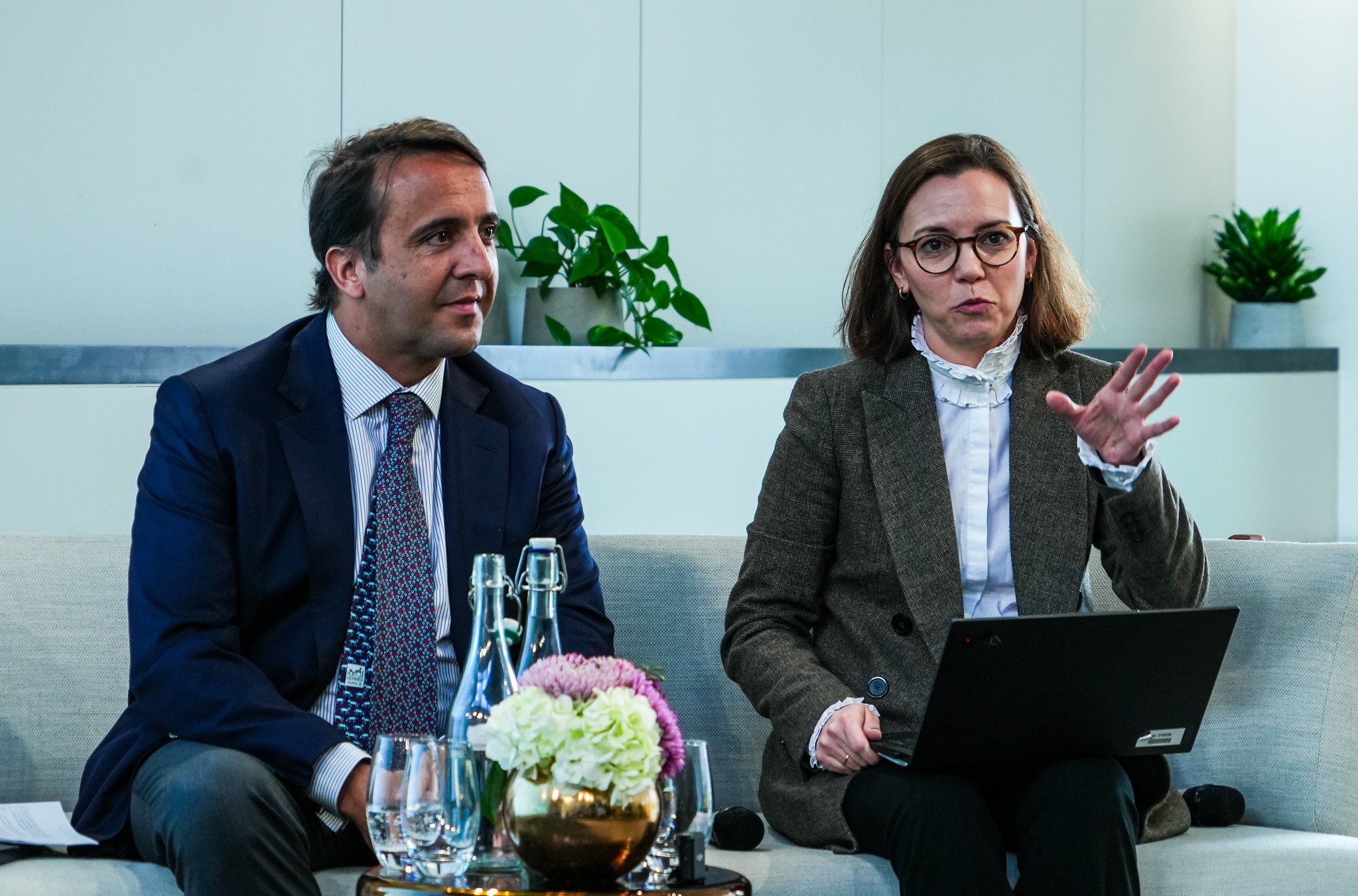
María Pradillo echoed this optimism, referencing Plan Vive in Spain as a case study in successful public-private collaboration. She also pointed to fast-moving developments in the data center sector in Aragón, illustrating how nimble legislation can unlock entirely new asset classes.
Morais Leitão also touched on Portugal’s updated non-habitual resident regime, suggesting it could provide a tailwind for attracting both capital and talent. As Europe faces increasing regulatory complexity, both panelists agreed that Iberia is positioning itself not just as an investment-friendly environment—but as a destination of choice for institutional players seeking clarity, speed, and local cooperation.
Logistics in Iberia: risk-adjusted returns in a fragmenting market
After a networking break it was time to address Logistics, often seen as the quiet engine of Iberia’s real estate sector but running at full throttle according to the views of Square AM, Blackstone, and CBRE who shared the stage in London.
Jack Cox, Managing Director Industrial & Logistics, CBRE Europe, kicked off with a macro view: “Turnover in the sector reached €41 billion—only eclipsed during the pandemic peaks.” Spain and Portugal both registered positive momentum, driven not by exuberance but by structural soundness. “Markets like France or the Netherlands were hit hard by inflation,” Jack Cox added, “but Spain adjusted much more swiftly, limiting the damage and preserving fundamentals.”
Francisco Fezas Vital, Principal at Blackstone, noted that while transactional volumes in Portugal have been muted, pricing resilience is creating a compelling rationale for development. “In some ways, it’s been a blessing. There’s more margin to work with,” he said.
All panelists pointed to an urgent lack of Grade-A logistics space, especially in prime areas. “Madrid has deep demand, but land scarcity is real,” Jack Cox said. “Barcelona is a different creature altogether,” he added, referencing regulatory hurdles and limited developable space.
Blackstone is bullish on smaller cities too. “Bilbao and Malaga are markets we like,” said Fezas Vital, “but again, land is the bottleneck.” On the other hand, Nuno Nunes, CIO at Square AM, noted that secondary cities in Portugal offer smaller plots—ideal for tenants looking for sub-10,000 sqm footprints, a segment seeing increasing demand.

In a market where demand profiles shift rapidly, flexibility is gold. “We design for adaptability,” said Fezas Vital. “Modular warehouses, divided layouts, flexible utility provisioning—it’s not optional anymore.” The growing proximity between logistics and data centers was a hot topic. “If you're competing for land against a data center developer, you’re probably going to lose,” Jack Cox remarked. “They can pay more. That’s a new reality.”
As costs rise, the focus has shifted inward. “We’re investing in construction-phase software to optimize costs,” said Nuno Nunes. “The cost savings aren’t marginal—they’re decisive.” Blackstone, meanwhile, has completed several major sales in Spain, and Fezas Vital sees rising interest from institutional buyers. “The market is maturing—and more importantly, it’s earning trust.”
The Living Sector: a sector born of necessity, not trend
Few real estate sectors carry the emotional weight—or the political sensitivity—of residential. Yet as the global housing crisis deepens, Iberia’s living sector is drawing institutional capital in search of long-term, resilient returns. This was the core theme that gathered experts from Azora and Patron Capital to debate on the last panel of the conference.
Cristina Garcia-Peri, Managing Director & Partner at Azora, recounted how her firm entered the student housing space back in 2011, long before the asset class became fashionable. “Nobody cared about rental growth then. We launched RESA out of necessity, not vision,” she said. That same philosophy is now guiding Azora’s push into senior living.
Jonatas Szkurnik, Investment Director & Senior Partner at Patron Capital, offered a sobering statistic: “You can’t find anything below €3,500–4,000 per square metre in Lisbon.” He described a market strained by rising construction costs, complex regulation, and a mismatch between supply and actual needs.
“Buildings now resemble icebergs—what you see above ground is only a fraction of what’s built underground in parking.”
To make deals viable, developers are turning to innovative models. “We’re structuring land payments around construction milestones,” said Szkurnik. “It’s a quasi-private equity model, designed to recycle capital more efficiently.” Yet scaling remains difficult. “Doing 200 to 500 PRS units isn’t enough—you need real scale to attract institutional capital.”
Refurbishment is often preferred over new build, but even that comes with risk. “We’re seeing heavy investment into commercial land for coliving,” Garcia-Peri said. “But the regulatory and reputational risks are real—and they’re not going away.”
Both panelists emphasized the psychological pull of high-end units. “When you’re holding prime stock, it’s tempting to sell,” said Garcia-Peri. “That’s why we focus on affordable—because it’s easier to hold, and the tenant base is more stable.” She warned against being seduced by headline demand figures. “Some cities already have oversupply. Selectivity is essential.”
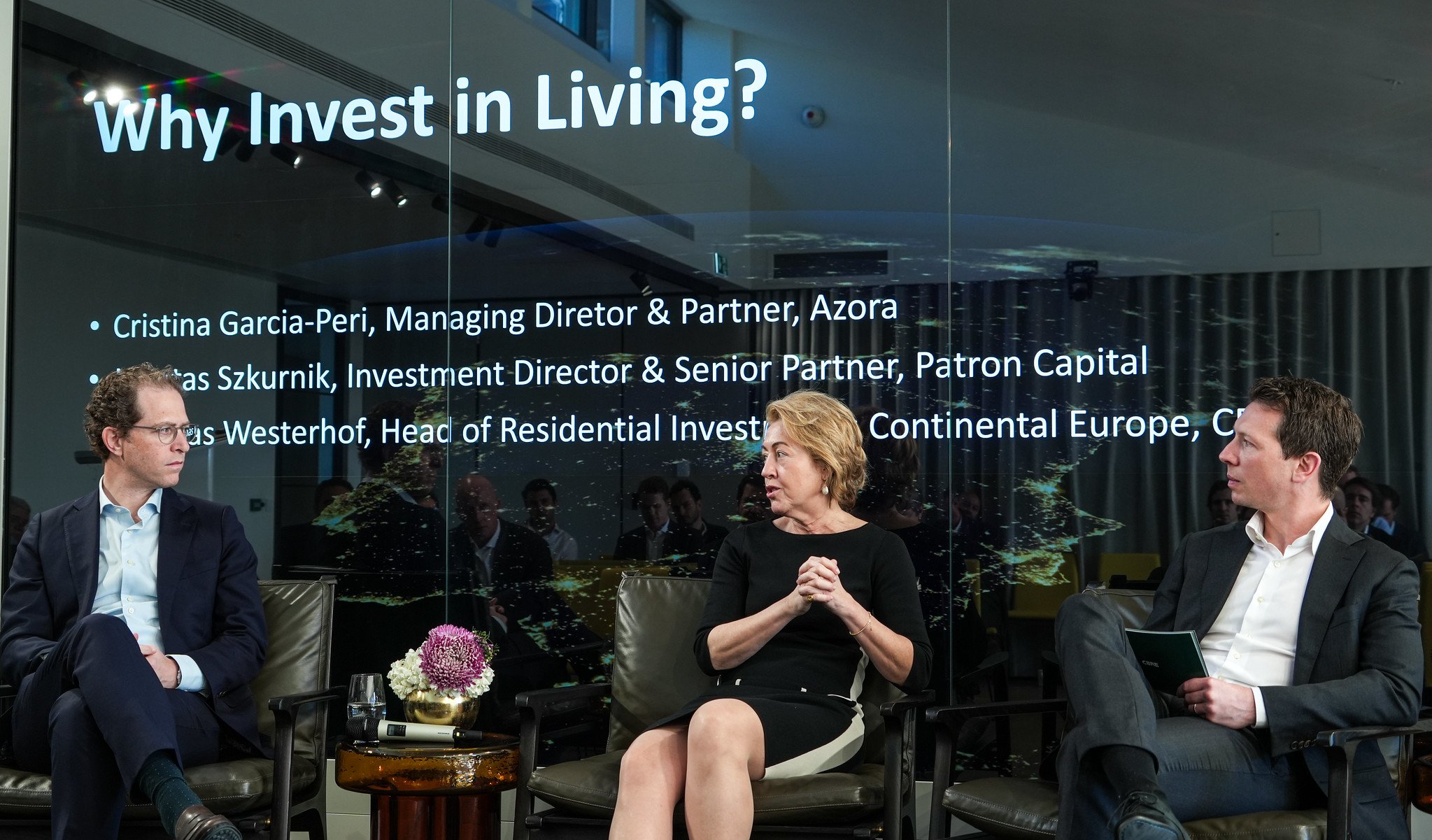
The Core Dilemma: who are we building for?
Szkurnik concluded with a pointed reflection: “Too often, projects are designed for a foreign buyer who may never live there, while ignoring the needs of locals.” That misalignment, he argued, is the root cause of both housing shortages and policy overreach.
